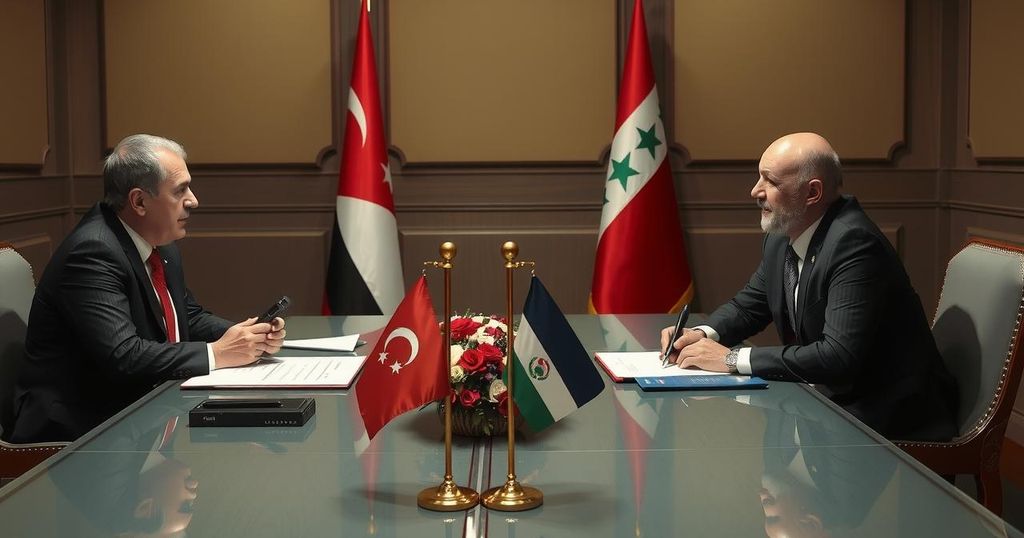International Officials Call for Peaceful Transition in Syria
Officials from the US, Turkey, and several Arab nations met in Jordan, agreeing to support a peaceful transition in Syria. Discussions emphasized the need for an inclusive government and coordination among regional powers to avoid chaos similar to Libya’s. Despite ongoing dialogue with the rebel group HTS, skepticism remains due to its violent history. The absence of the Syrian government and key allies like Iran and Russia complicates the situation.
Officials from the United States, Turkey, and several Arab nations convened in Aqaba, Jordan, where they expressed a unified stance in favor of a peaceful transitional process in Syria. Jordanian Foreign Minister Ayman Safadi articulated the collective apprehension among regional powers regarding the potential chaos that could ensue in Syria. US Secretary of State Antony Blinken acknowledged Washington’s discussions with the rebel faction, Hayat Tahrir al-Sham (HTS), which played a significant role in the ousting of President Bashar al-Assad.
A joint statement voiced the necessity for an inclusive Syrian government, emphasizing the protection of minority rights and a commitment to preventing any alliance with terrorist organizations. The urgency for new governance capabilities that reflect the diversity of the Syrian populace has been increasingly emphasized post recent upheavals.
Iraqi Foreign Minister Fuad Hussein conveyed the mutual concern shared by regional players regarding Syria’s trajectory, invoking the turmoil faced by Libya after the fall of Colonel Gaddafi. Turkish Foreign Minister Hakan Fidan urged for the reform and preservation of existing Syrian institutions, reiterating the importance of ensuring that terrorism does not exploit the transition period.
Despite HTS’s overtures towards an inclusive government, skepticism regarding its commitment remains prevalent due to its historical ties to jihadist actions. Meanwhile, Secretary Blinken confirmed direct engagement with HTS, particularly concerning the case of missing American journalist Austin Tice, despite the group’s classification as a terrorist organization by the US.
Notably, no representatives from the Syrian government attended the discussions, nor were any delegations from Iran or Russia, both of which provided critical financial backing to Assad’s administration. The complex dynamics of external interventions continue to cast a significant shadow over Syria’s future, necessitating a cohesive framework among emerging political entities for genuine progress.
The context of this article lies within the ongoing conflict in Syria, which has drawn the involvement of various international players over the years. As the civil war continues to create instability, the unity of the Syrian state has come under severe threat, prompting regional powers to seek a collaborative approach towards a peaceful resolution. The role of the US, Turkey, and Arab nations signifies a strategic interest in shaping a post-conflict governance structure that seeks to avoid the pitfalls seen in other regions afflicted by similar turmoil, such as Libya. Recent events have underscored the importance of developing a representative governmental framework to ensure stability and peace and to address the different sectarian interests within Syria.
In summary, the consensus among US, Turkish, and Arab officials to support a peaceful transition in Syria highlights the growing urgency for a cohesive governance framework that encompasses all segments of the Syrian populace. Engaging with HTS while remaining cautious of its violent past demonstrates the complexities of fostering an inclusive political landscape. As discussions progress, the absence of Syrian government representatives and key international players such as Russia and Iran raises questions about the future political fabric of Syria and the potential for sustained stability.
Original Source: www.bbc.com




Post Comment